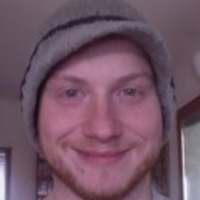Matthew earned his bachelor’s degree in philosophy from the University of Washington. He specializes in science tutoring, calculus tutoring, and a number of other subjects. Below he shares his review of his experience at the University of Washington:
Describe the campus setting and transportation options.
Matthew: University of Washington (UW) is one of the most beautiful campuses in the country, perhaps the world. When I went, a UW student ID gave free use of all greater Puget Sound public transportation. If a bus is too inconvenient for a particular trip (rare), Uber and taxis are available. The campus is in the middle of the urban "U-district" of Seattle. It is essentially in the middle of a city. However, the campus itself is quite large with quiet green spaces. While there were some incidents (it has an enormous student body), I always felt quite safe. Currently, the school is trying a program to house homeless people, but I'm certain that maintaining student safety is still their primary concern.
How available are the professors, academic advisers, and teaching assistants?
Matthew: Although, thanks to the size of the student body, there are huge arena classes, I always felt that there was plenty of help available. Though UW does not have a policy of holding your hand; you do need to be able to decide when you need to seek help, but understand that help is available.
How would you describe the dorm life—rooms, dining options, location, socialization opportunities with other students?
Matthew: I did not stay in the dorms. While there are on campus food options that are decent and not too expensive, the campus actually extends out into the nearby U-district, which contains numerous amazing food options. The location is perfect. It's not so busy that school is inconvenient to navigate, but it is very close to amazing things that Seattle has to offer. There were many opportunities to socialize, however, the responsibility may be on the student to find many of them. With such a diverse population, one is bound to find opportunities if one puts in some effort.
Which majors/programs are best represented and supported? What did you study and why?
Matthew: There are many great programs with amazing staff at the university. Many different science departments have won awards including Nobel prizes. In addition, there is no overlooked program at UW. They strive for excellence in every field. Philosophy was very open, but that gave me the opportunity to focus on amazing classes in advanced logic, set theory, probability and induction, and quantum physics. The teachers were all incredibly knowledgeable and I always felt that I was working with the most up-to-date concepts.
How easy or difficult was it for you to meet people and make friends as a freshman? Does Greek life play a significant role in the campus social life?
Matthew: I was never involved. Though there are Greek organizations that exist on campus, it is not necessary to join a fraternity or sorority.
How helpful is the Career Center and other student support services?
Matthew: Absolutely, especially for the medical and CSE programs, though a plethora of the top companies look to recruit out of UW for many programs.
How are the various study areas such as libraries, the student union, and dorm lounges? Are they over-crowded, easily available, spacious?
Matthew: There are many libraries on campus. From the quiet frenetic energy of the Odegaard undergraduate library, to the "Harry Potter" beautiful and quiet Suzalo library (and the many departmental libraries), there is no end to the variety of libraries. There are many other study areas, from numerous quiet spaces to the ubiquitous cafés feet from and inside the campus, so you can find an area that appeals to you. It very much depends on the area. Odegaard will be the primary library you are directed to, and, while it may be large with many people moving throughout it, it stays reasonably quiet and has plenty of stations to work (most with computers).
Describe the surrounding town.
Matthew: You can find almost any kind of food and multiple parks off campus. You're 10 to 20 minutes from downtown. The famous Neptune theater is a 5-minute walk from campus, and there is no shortage of coffee places and student-friendly restaurants. There is so much right near the campus, but it's so easy and cheap to get to downtown, that there's plenty of traffic in both places.
How big or small is the student body? Were you generally pleased or displeased with the typical class sizes?
Matthew: Enormous. I was pleased with the class sizes. Even stadium classes had sections with grad student TAs where you and a handful of peers can ask questions and get help.
Describe one memorable experience with a professor and/or class. Perhaps one you loved the most or one you regret the most.
Matthew: That's tough. I worked with Arthur Fine, from whom I took intermediate logic (where we constructed an ostensibly consistent and complete system of logic *undone in advanced logic where we studied Gödel's incompleteness theorem*) and the philosophy of quantum mechanics, which really gave a fantastic basis for a not hyped-pop-science understanding of what we do and do not know about quantum physics and the competing fundamental structures of beliefs trying to explain quantum phenomena. Also, I got to take amazing classes on induction and probability and set theory from an amazing professor, and I got to take a class on comparative programming languages from one of the people who worked at the Xerox lab.
Check out Matthew's tutoring profile.
The views expressed in this article do not necessarily represent the views of Varsity Tutors.

